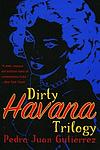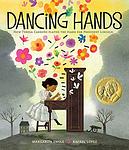The Greatest Portuguese, Cuban "Fiction" Books Since 1990
Click to learn how this list is calculated.
This list represents a comprehensive and trusted collection of the greatest books. Developed through a specialized algorithm, it brings together 300 'best of' book lists to form a definitive guide to the world's most acclaimed books. For those interested in how these books are chosen, additional details can be found on the rankings page.
Genres
Countries
Date Range
Reading Statistics
Click the button below to see how many of these books you've read!
Download
If you're interested in downloading this list as a CSV file for use in a spreadsheet application, you can easily do so by clicking the button below. Please note that to ensure a manageable file size and faster download, the CSV will include details for only the first 500 books.
Download-
1. Blindness by José Saramago
In this dystopian novel, an unexplained epidemic of "white blindness" sweeps through an unnamed city, causing chaos and panic. The government responds by quarantining the afflicted in an abandoned mental hospital, where conditions quickly deteriorate into violence and squalor. Amid the despair, one woman mysteriously retains her sight and guides a small band of the blind, including her husband, through the harrowing ordeal. The novel explores themes of loss, human nature, and the fragility of civilization.
-
2. Dreaming in Cuban by Cristina García
"Dreaming in Cuban" is a multi-generational narrative that explores the lives of several women from a Cuban family, spanning from the 1930s to the 1980s. The story oscillates between Cuba and the United States, reflecting on the Cuban revolution, exile, and identity. Through the perspectives of each character, the novel delves into themes of political turmoil, family dynamics, and personal struggles amidst cultural shifts and geographical displacement.
-
3. The Gospel According To Jesus Christ by José Saramago
This novel offers a provocative and humanized retelling of the life of Jesus Christ, diverging from traditional biblical narratives. It presents a Jesus who is all too human, grappling with the complexities of life, love, and a sense of destiny. Through a blend of biblical lore and imaginative fiction, the story explores themes of divinity, free will, and morality, challenging readers to reconsider the foundations of faith and the nature of storytelling itself. The narrative delves into Jesus's relationships, his encounters with figures such as God and the Devil, and ultimately portrays a deeply philosophical and introspective version of a figure central to Western civilization.
-
4. Treaty Of The Soul's Passions by António Lobo Antunes
"Treaty of the Soul's Passions" is a profound exploration of human emotions and the complexities of the inner self. Through a series of interconnected stories and reflections, the narrative delves into the depths of love, despair, joy, and suffering, painting a vivid picture of the human condition. The author masterfully weaves a tapestry of characters and experiences, each revealing different facets of the soul's journey through life. With poetic language and rich psychological insight, the book invites readers to confront their own passions and question the nature of existence itself.
-
5. Dirty Havana Trilogy by Pedro Juan Gutierrez
This book is a raw and gritty portrayal of life in Havana, Cuba during the economic collapse of the 1990s. The story is narrated by a former journalist turned hustler who lives in the city's slums. The protagonist survives through a series of odd jobs and illegal activities, as he navigates through a world of poverty, violence, and corruption. The narrative is filled with graphic depictions of sex, drugs, and the struggle to survive, providing a stark contrast to the romanticized image of Havana.
-
6. Terra Sonâmbula by Mia Couto
"Terra Sonâmbula" by Mia Couto is a captivating novel set in war-torn Mozambique, where two individuals, a young boy and an old man, cross paths and embark on a journey that intertwines their lives. Through their encounters with other characters and their shared experiences, the book explores themes of loss, displacement, and the power of storytelling to heal and provide hope in the face of adversity. The lyrical prose and magical realism elements create a rich and evocative narrative that immerses readers in the complex and haunting world of post-colonial Mozambique.
-
7. Cain by José Saramago
The novel explores the biblical story of Cain and Abel from the perspective of Cain, after he murdered his brother. The author reimagines the Old Testament by having Cain time travel to key events and interact with biblical figures such as Noah and Abraham, challenging the traditional interpretations of morality, justice, and faith. Cain's journey reveals a critical view of God and the paradoxes of the human condition.
-
8. Drum Dream Girl by Margarita Engle
"Drum Dream Girl" is a captivating children's book that tells the inspiring true story of a young girl in 1930s Cuba who dreams of playing the drums. Despite societal expectations and cultural norms that prohibit girls from playing music, the determined protagonist follows her passion and breaks barriers, ultimately becoming the first female drummer in Cuba. Through vivid illustrations and poetic storytelling, the book celebrates the power of dreams, perseverance, and the importance of challenging societal limitations.
Reading Statistics
Click the button below to see how many of these books you've read!
Download
If you're interested in downloading this list as a CSV file for use in a spreadsheet application, you can easily do so by clicking the button below. Please note that to ensure a manageable file size and faster download, the CSV will include details for only the first 500 books.
Download






